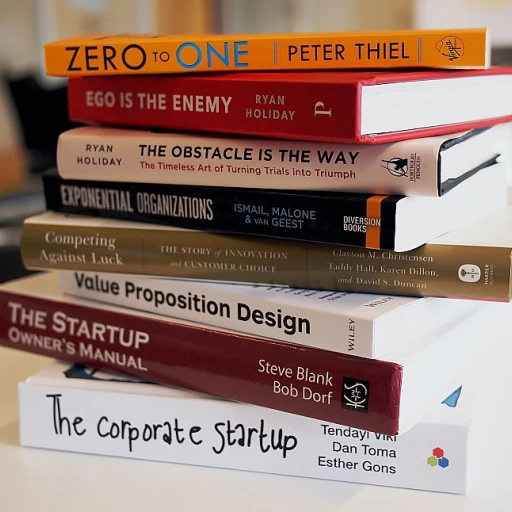
Why a structured interview schedule email matters in modern hiring
A carefully written interview schedule email shapes the candidate experience. When a company sends a clear invitation email, the candidate immediately senses how organized the interview process will be. In human resources analytics, this first contact is measurable through response rates and times work patterns.
Recruiters know that every interview invitation reflects the company brand. The subject company line, the job title, and the title position all signal whether the hiring team respects people’s time and effort. Analytics teams can compare how different subject lines and templates affect reply email speed, interview time acceptance, and overall hiring funnel conversion.
From an HR analytics perspective, each email template is a testable asset. A structured invitation that includes the position company name, the interviewer details, and a clear interview time often reduces back and forth about dates times. When the company candidate communication is consistent, analysts can link specific invitation email formats to lower no show rates and shorter time to fill for each job.
Clarity in the interview schedule email also supports fairness. When all candidates receive the same invitation, with the same subject, job title, and company contact information, the interview process becomes easier to audit. This consistency helps identify whether certain groups of candidates need more support, for example with video interview instructions or alternative time options.
Human resources analytics teams increasingly track how a company email influences candidate trust. They examine whether a group interview invite or a one to one interview will generate higher acceptance among different candidate segments. Over time, the best performing email template becomes a standard, while weaker templates are refined or retired.
Key elements every interview schedule email should include
An effective interview schedule email always answers the candidate’s basic questions. It states the job title, the title company, and the exact position company team that is hiring. It also clarifies whether the interview will be in person, by phone, or via video platform.
Every invitation email should contain a precise interview time and time zone. Listing two or three dates times helps candidates compare times work with their current role or personal obligations. When recruiters propose an alternative time in the same email, they reduce friction and improve the likelihood that candidates will reply email quickly.
Including the interviewer name, role, and company contact details builds trust. Candidates appreciate seeing a direct phone number and a professional company email address in the invitation. This transparency reassures them that the interview process is legitimate, especially when the subject company line clearly connects to the advertised title position.
Logistical clarity is equally important in the email template. For a phone interview, specify who will initiate the phone call and confirm the correct phone number. For a video interview, provide the link, access instructions, and a brief note about any group interview format or panel interviewer presence, with estimated time required.
Human resources analytics can quantify how these elements affect candidate behavior. For example, teams can compare response rates between a short invite and a detailed invitation email that includes preparation tips and links about the screening interview stage, such as this overview of the role of screening interviews in hiring. Over multiple hiring cycles, data reveals which structure, subject, and content lead to the best balance between speed and candidate satisfaction.
Designing data informed subject lines and templates that perform
The subject line of an interview schedule email strongly influences open rates. A clear subject that combines the job title, title position, and title company helps candidates immediately recognize the opportunity. For example, including both the position company name and the phrase interview invitation in the subject company line reduces confusion with generic messages.
Analytics teams often run A/B tests on the subject and body of each invitation email. They may compare a concise subject with one that includes interview time or interview process stage information. Over time, they identify which subject company wording leads to faster reply email behavior and fewer requests for an alternative time.
Within the email template, structure supports both clarity and measurement. A standard layout that always presents the job, interview time, interviewer details, and company contact in the same order makes it easier to analyze candidate responses. When multiple candidates receive the same template, analysts can attribute differences in acceptance rates to factors like times work constraints or candidate seniority, rather than inconsistent communication.
Templates should also account for different interview formats. A group interview invite, for example, needs to specify all interviewers, the expected number of candidates, and whether the interview will include a case study or presentation. For a phone interview or video interview, the template should highlight technical requirements and provide a backup phone number in case of connection issues.
Human resources analytics can even connect email template performance to later stages of hiring. By linking invitation email variants to reference check completion rates, teams can see whether early clarity reduces later friction, especially when recruiters follow structured guidance such as these essential questions to ask when calling for a reference. Over several hiring cycles, the best performing templates become benchmarks for the entire company candidate communication strategy.
Using HR analytics to optimize timing, channels, and interviewer coordination
The timing of an interview schedule email can be as important as its content. Human resources analytics teams examine when candidates are most likely to open an invitation email and propose interview time slots that respect typical times work patterns. For example, sending a company email during local business hours often yields faster reply email responses than late night messages.
Data can also reveal which channels work best for different candidate groups. Some candidates respond quickly to a phone call followed by a confirmation email template, while others prefer a detailed video interview invite with calendar integration. Tracking open rates, click throughs, and confirmed dates times across channels helps refine the interview process for each job family.
Coordination among interviewer participants is another analytical challenge. When several interviewers share a group interview, HR teams must align calendars, define the interview process steps, and agree on the title position responsibilities being assessed. Analytics tools can suggest overlapping times work windows and automatically generate invitation email drafts that include all necessary company contact details.
For candidates, flexibility remains essential. Offering at least one alternative time in the initial invite shows respect for their current job obligations. When a candidate proposes a different interview time, recruiters can use scheduling tools to quickly forward updated invitations to every interviewer and ensure the subject company line and job title remain consistent.
Over time, organizations build benchmarks for how long each interview will take and how many messages are needed to confirm a slot. These metrics, combined with broader talent acquisition analytics such as those discussed in this article on how analytics is transforming talent acquisition, help refine both the company candidate experience and recruiter workload. The result is a more predictable interview schedule email workflow that supports both efficiency and fairness.
Personalization, fairness, and accessibility in interview invitations
While standardization supports analytics, personalization makes an interview schedule email feel human. Addressing the candidate by name, referencing the specific job title, and briefly mentioning why their profile fits the title position can significantly improve engagement. This balance between a reusable email template and tailored content is central to modern hiring practice.
Fairness requires that all candidates receive the same essential information. Each invitation email should clearly explain the interview process, expected interview time, and whether the interview will be a group interview or one to one. When candidates understand the structure, they can prepare appropriately and evaluate whether the position company culture aligns with their expectations.
Accessibility considerations are increasingly important in every company email. Candidates may need an alternative time due to caregiving responsibilities, health conditions, or time zone differences. Providing a direct phone number and company contact in the invite allows them to request adjustments without feeling they are inconveniencing the interviewer or jeopardizing their chances.
Analytics can highlight where accessibility gaps exist. For example, if candidates in certain regions consistently decline proposed dates times, HR teams can adjust times work windows or offer more flexible video interview options. Tracking which invitation email formats generate the best response among diverse candidate groups supports both inclusion and hiring efficiency.
Personalization also extends to follow up messages. When recruiters forward a reminder or updated interview invitation, they should keep the subject company line, job title, and title company consistent to avoid confusion. Over multiple hiring cycles, data will show which combinations of initial invite, reminder email template, and phone confirmation lead to the strongest company candidate relationships and the lowest withdrawal rates.
Measuring success and iterating on your interview schedule workflow
Human resources analytics turns the interview schedule email into a measurable asset. Teams track metrics such as time from invitation email to reply email, percentage of candidates accepting the first proposed interview time, and frequency of alternative time requests. These indicators reveal how well the current email template and scheduling practices support both candidates and interviewers.
Another key metric is the relationship between interview invitation clarity and no show rates. When the subject company line, dates times, and location or video link are explicit, candidates are less likely to miss the appointment. Analytics can compare outcomes across different job families, interviewer groups, and position company locations to identify where additional detail or reminders are needed.
Qualitative feedback also matters. After the interview process, some organizations send a brief survey asking how clear the company email communication was, whether the job title and title position were well explained, and if the candidate felt comfortable requesting an alternative time. Combining this feedback with behavioral data on times work patterns and response speed creates a richer picture of the company candidate experience.
Iteration should be deliberate and documented. When HR teams adjust an email template, change the subject, or modify how they forward calendar invites to interviewer panels, they should track the impact over several hiring cycles. This disciplined approach prevents random changes from obscuring which elements of the interview schedule email truly drive better outcomes.
Ultimately, the best organizations treat every invitation email as part of a broader communication strategy. They ensure that each company contact, from the first invite to the final offer, reinforces trust, clarity, and respect for the candidate’s time. By grounding decisions in data and continuously refining templates, subject lines, and scheduling practices, HR teams build an interview process that serves both candidates and the company with equal care.
Practical example of a data driven interview schedule email template
To translate analytics into practice, many HR teams maintain a core interview schedule email template. This template includes placeholders for the candidate name, job title, title company, and title position, along with a clear explanation of the interview process. It also specifies whether the interview will be a phone interview, video interview, or in person meeting, with estimated interview time.
A typical invitation email might open with a brief thank you for the candidate’s interest in the position company role. It then presents two or three dates times, clearly labeled with time zones, and invites the candidate to select one or propose an alternative time if none of the options fit their times work constraints. The message includes the interviewer name, role, and company contact, along with a direct phone number and professional company email address.
The subject company line could read, for example, “Interview invitation – [job title] at [title company].” Within the body, the recruiter explains that the interview will last a specific time and outlines any preparation expectations, especially for a group interview or technical assessment. A short paragraph confirms that the company candidate communication channel will remain open for any questions before the scheduled date.
Analytics teams then monitor how candidates respond to this standardized email template. They track reply email speed, acceptance of initial dates times, and frequency of rescheduling requests, comparing results across different jobs and locations. Over time, they refine wording, adjust the number of proposed slots, and test whether including additional details about the interviewer or interview process improves engagement.
By combining structured templates with continuous measurement, organizations ensure that every interview schedule email supports both operational efficiency and a respectful candidate experience. This approach aligns hiring practice with broader HR analytics goals, strengthening the link between communication quality, hiring outcomes, and long term talent retention.
Key statistics on interview scheduling and candidate communication
- Organizations that standardize their interview schedule email templates often reduce time to schedule by up to 30 %, based on internal HR analytics benchmarks.
- Including at least two dates times and one alternative time option in the invitation email can increase first response acceptance rates by more than 20 % in many corporate environments.
- Clear subject company lines that reference both the job title and title company typically achieve higher open rates than generic subjects, according to aggregated recruitment campaign data.
- Providing a direct phone number and company contact in every invitation email is associated with lower candidate no show rates in several large scale hiring programs.
- Organizations that track interview time, reply email speed, and rescheduling frequency at scale often identify scheduling bottlenecks that, once resolved, shorten overall hiring cycles.
Common questions about interview schedule emails
How detailed should an interview schedule email be for candidates ?
An interview schedule email should include the job title, title company, interviewer name, interview time, time zone, and whether the interview will be by phone, video, or in person. It should also outline the interview process stage and expected duration. Providing this level of detail helps candidates prepare and reduces follow up questions.
What is the best subject line for an interview invitation email ?
The best subject lines clearly reference the interview invitation, job title, and title company. For example, combining “Interview invitation” with the specific position company name helps candidates recognize the message quickly. Avoid vague subjects and ensure the subject company line matches the content of the email template.
How many time options should I offer in an interview schedule email ?
Offering two or three dates times in the initial invitation email usually balances flexibility with simplicity. Including an explicit offer for an alternative time shows respect for the candidate’s times work constraints. Analytics can later confirm whether this approach improves reply email rates and reduces rescheduling.
Should I send interview details by phone as well as email ?
Combining a phone call with a confirmation email can be effective, especially for senior roles or time sensitive hiring. The phone interview confirmation allows immediate alignment on interview time, while the company email provides a written record of dates times, location or video link, and company contact details. HR analytics can compare outcomes across different communication combinations.
How can HR analytics improve the quality of interview schedule emails ?
HR analytics helps organizations test different email template structures, subject lines, and timing strategies. By tracking metrics such as open rates, reply email speed, acceptance of proposed dates times, and no show rates, teams can identify which interview schedule email practices work best. This evidence based approach supports continuous improvement in both candidate experience and hiring efficiency.













